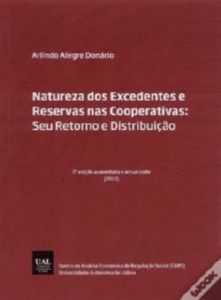This study resulted from the experience in a higher education cooperative, over several years, which led us to deepen this branch of law, with the aim of its empirical application, in order to experience the cooperative principles that express the mutualist and personalist nature. of cooperativism.
This branch of law is closely linked to the economy, therefore, to work, to the production of goods and services. Among the forms of human being's accomplishment, work stands out when performed with satisfaction per se, as well as when the result of this work allows a life in accordance with human dignity, whose accomplishment must be respected and promoted by all, namely, by those who perform functions in the political and business sphere, so that this work does not resemble Sisifo's condemnation.
Cooperativism, with its humanist nature, aims at the satisfaction of the human being in several domains, being, therefore, in close connection with human dignity, emphasizing ethical and solidary values, aiming at commutative and distributive justice.
Any study is the result of the research work of many other authors who have previously addressed the issues under analysis, as well as discussions with others who are interested in these issues. Knowledge is a continuous, dynamic and provisional process, therefore, always unfinished.
In this second edition we develop the concept of added value, which we consider to be a useful instrument for the application of cooperative law, as well as the issue of the dissolution of cooperatives.


